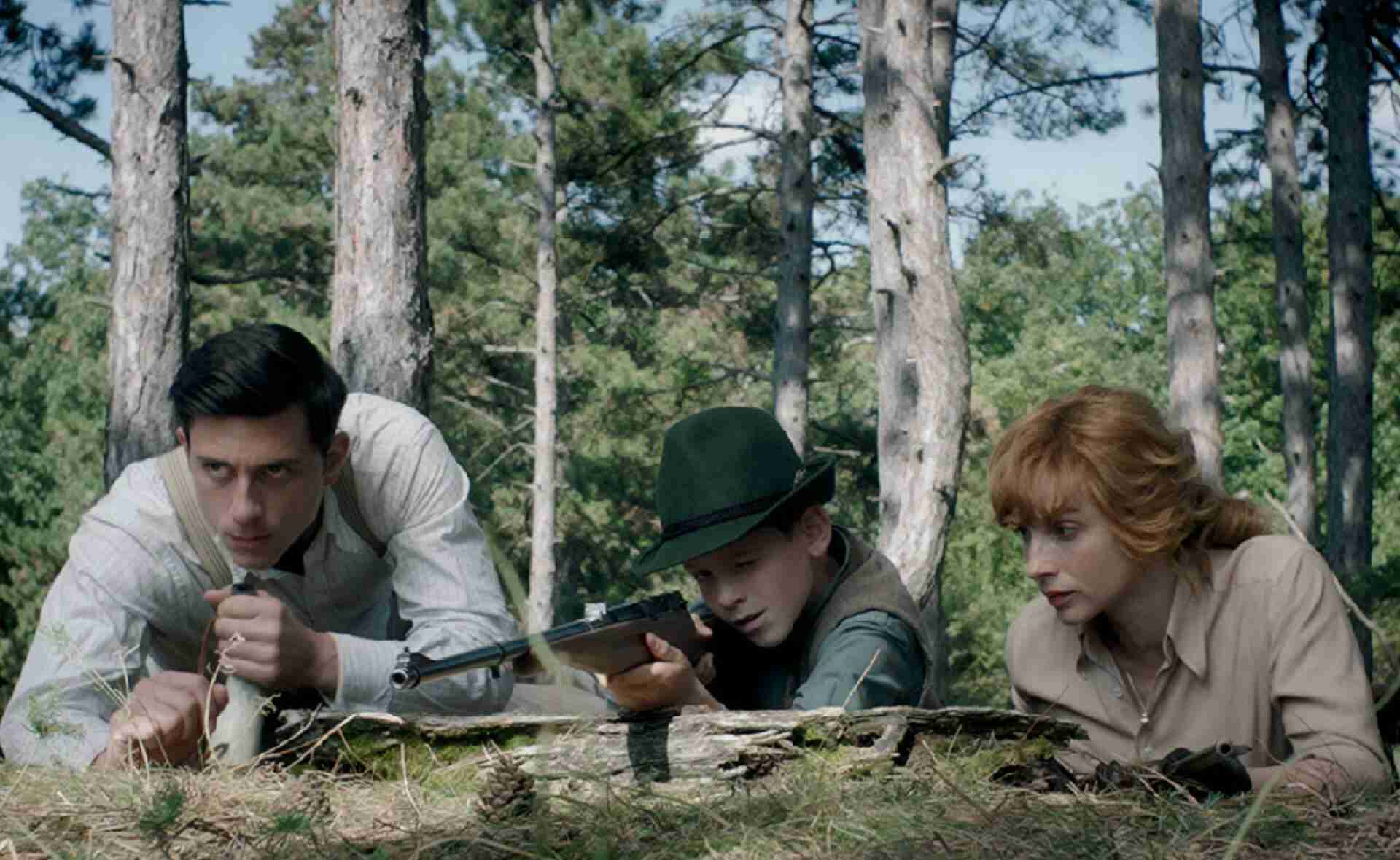
TALL TALE (APRÓ MESÉK, 2019)
Shortly after the end of World War II, a con man on the run finds himself in a passionate love affair that may well cost him his life.
A WESTERN IN A LAWLESS PERIOD
Numerous Hungarian films told the horrors of World War II and even more did the same with the crimes of the communist regime. But very few attempted to bring to life those transitional years after the end of World War II, when the Hungarian Fascist Party was ousted from power and the takeover of the country by the Communists in the rigged elections of 1948. Those three years in hindsight seems like a breath of fresh air, a fleeting chance to live in democracy before and after experiencing the atrocities of two totalitarian regimes. But the writer-director duo of Attila Szász and Norbert Köbli (Eternal Winter) sees this period as a kind of western in which the old rules don’t apply anymore, but there aren’t any new ones, so bandits and chaos rules the land. It is a very cinematic but also a historically legitimate point of view, because World War II left the capitol, Budapest in ruins; people starved, money had no value, and they had to get by with almost nothing.
Hankó, the charming antihero of Apró mesék is clearly marked by his experiences in the war, and lives day to day by answering ads in the papers and consoling grieving and worried parents and wives and lovers with false stories about the heroics of their lost ones. He soon finds himself in the middle of a wild forest at a ranch of a single mother and her son who thinks his father perished in the war.
CHANGING TIMES, CHANGING IDEOLOGIES
Apró mesék is a peculiarity among Hungarian movies: a Hitchcockian romantic thriller disguised as a stylish neo-noir in the vein of old Hollywood noirs (The Third Man) and newer thrillers (Eye of the Needle, Cape Fear, and the films of Anthony Minghella, from Cold Mountain to The Talented Mr. Ripley). Attila Szász directed the movie with a deep knowledge of genre conventions that is considered rare in the Hungarian film industry which is famous for its art house tradition. The sweeping score invokes the work of Bernard Herrmann (Vertigo), the shots are filled with masterfully created tension, and every character seems larger than life and at the same time exposed to dangers coming from the unusual age and its shaky morality.
Just as screenwriter Norbert Köbli’s first historical thriller, The Exam, which tells the story of spies being spied upon by other spies in the paranoid era of the 50s, Apró mesék is also about the unpredictability of changing times when people have to adapt to new rules and new ideologies. “My movies take place in periods when people are told that they have to think differently from now on. We know that you’ve marched with the fascists with saluting arms, or thought that this is the truth of the world, but starting from today, it’s not. You remain the same, but you have to think differently about the world and about society. We know that young Hungarian fascists joined the Communist party in great numbers. As they say in Apró mesék: A good hunter is always needed”, said Köbli in an interview.
Köbli started to write historical thrillers with The Exam and made the genre fashionable in Hungary. His movies are suspenseful thrillers that speak about Hungarian history in a clever way. Apró mesék is probably the most mature of Köbli’s and Szász’s movies: a stylish thriller, an exciting historical movie, and a very romantic film that dares to suggest in our ironic times that love maybe can conquer all in the end.
